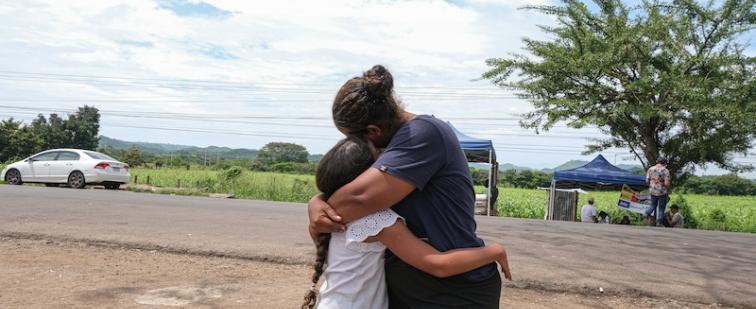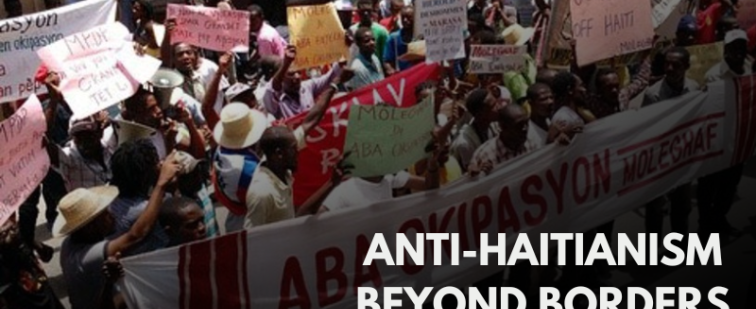Home
The unsuspecting governor, smack in the middle of an important press conference, missed being hit by a projectile by mere inches. The projectile? Not a bullet, but an egg. An outraged citizen calling himself "the Common Guy" (el tipo común) interrupted the press conference by screaming in outrage at Puerto Rico's governor, Luis Fortuño, and throwing a slider that landed on a sign highlighting a new development project the governor was announcing. As officers locked the man in a bear hug and carted him off, and as the press swarmed this Common Guy, it became clear that his public display of resistance was not only transcendental for its raw expression of pain and anger, but was also symbolic and representative of everyone's frustration and open outrage at the turn of events on the island.
On the night of October 10, a joint force of military and police personnel, looking like a SWAT team on the verge of a major drug bust, surrounded hundreds of buildings in and around Mexico City. Equipped with shields, helmets, and billy clubs ready to strike, they waited for a coordinated signal, and then hopped the walls and seized the buildings. The buildings in question belonged not to one of Mexico's big-time crime syndicates, but to Luz y Fuerza del Centro (Central Light and Power), the public power company that for decades has provided electricity to millions of people in the most populated part of the center of the country, including over 25 million people in the Mexico City area. Later that night, around midnight, President Felipe Calderón issued a presidential decree liquidating the company, thereby eliminating its feisty, independent union.
The three Amarilla-Molfino brothers did not know their mother had given birth to a fourth son. The three older brothers had grieved the "disappearance" of their parents, Guillermo and Marcela, by the military dictatorship that ruled Argentina from1976 to 1983. Yet evidence that came to light just three months ago revealed that Marcela had given birth to a fourth son - Martín - in 1979, while she was held prisoner at the clandestine detention center, Campo de Mayo. Twenty-nine years later, Martín Amarilla-Molfino was united with his three elder brothers, along with aunts and uncles, and saw a photo of his parents for the very first time.
On November 11, 2009, over 240 academics and experts on Latin America sent a letter to President Obama urging him to denounce the ongoing human rights violations perpetrated by the coup regime in Honduras ahead of the planned November 29 elections. They also urged him to demand the immediate restitution of President Manuel Zelaya and to support a full three months of electoral campaigning after the coup has been overturned and "debating, organizing, and all other aspects of election campaigns can be conducted in an atmosphere that is free from fear; in which all views and parties are free to make their voices heard—not just those that are allowed under an illegal military occupation." This would mean that this month's elections—which Latin America and the European Union have said they will not recognize—would need to be rescheduled.
Rapid economic globalization and recent political violence have spawned mass migrations of humanity across international borders throughout the Americas. The migrations have sparked fierce debates in many of the "receiving" countries, where the combination of exploding demands for cheap foreign labor and state obligations to protect incoming refugees have often provoked strong domestic opposition to the presence of foreign-born individuals—especially those without official documentation. While many of these debates have focused on the enactment of policies restricting the immigration of foreign-born adults, xenophobic sentiments have opened new political spaces to begin imposing limitations on the birth registration of the native-born children of immigrants.
Constitutional reforms have been seen by their leftist advocates as necessary to create the conditions for a redistribution of economic and political power, mainly by increasing public control over natural resources and national economies, and by expanding access to basic services. At the same time, however, particularly in Central America, constitutional reform has become a tool used by economic elites to retain and consolidate their power. Conservative forces in Honduras and Guatemala, for example, are defending existing constitutionally guaranteed power, or pushing power consolidation through proposed constitutional amendments.
After the indigenous uprising in Peru’s Amazon region in June, it appears that an indigenous pledge to physically resist the operations of Dallas-based Hunt Oil on communal rainforest lands could reignite the uprising. In what is shaping up as an important test case, Hunt Oil is opening trails in preparation for seismic exploration within an indigenous reserve in Madre de Dios.
In the early morning hours of January 31, vandals broke into Tiferet Israel, a Sephardic synagogue in Caracas. They strewed sacred scrolls on the floor and scribbled “Death to the Jews” and other anti-Semitic epithets on the walls, before making off with computer equipment and historical artifacts. Understandably, the incident frightened and upset many in the Venezuelan Jewish community. Right away, U.S. news outlets, including The New York Times and The Miami Herald, linked the incident to Venezuela’s increasingly strained relations with Israel, after the two countries suspended diplomatic relations two weeks earlier over Israel’s bombing of Gaza, then still under way.
In August, Bolivian president Evo Morales won a referendum on his term in office with 67% of the vote. The opposition, having failed to unseat Morales in the face of the largest electoral majority in Bolivian history, embarked on a campaign of violent destabilization that culminated in riots, economic sabotage, and the massacre of more than 20 indigenous Morales supporters in September. Just a day before the massacre, at the height of opposition violence, the Bolivian government expelled U.S. Ambassador Philip Goldberg, following revelations that the U.S. Embassy in La Paz had asked Peace Corps volunteers and a Fulbright scholar to spy inside Bolivia, together with growing evidence, amid official secrecy, of U.S. funding for violent opposition groups.
In August the Cuban authorities briefly detained a musician, Gorki Águila, 40, and charged him with “social dangerousness,” a crime punishable with up to four years’ imprisonment. Gorki, as he is widely known, is the lead singer and figurehead of Porno Para Ricardo, a punk rock band that has, since its formation in 1998, made increasingly direct and vulgar pronouncements against the Cuban leadership. (The band’s lyrics radicalized considerably after Gorki’s first imprisonment in 2003 after a conviction on drug charges.1) The band’s logo features the hammer and sickle, with the hammer in the form of a phallus, and their song lyrics lambaste the leadership as inept, decrepit, and repressive. Arrested presumably for his critical lyrics, Gorki was ultimately convicted of “public disorder” (for the band’s noisy rehearsals) and released with a fine.












